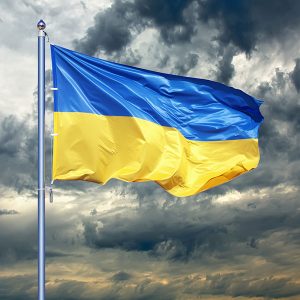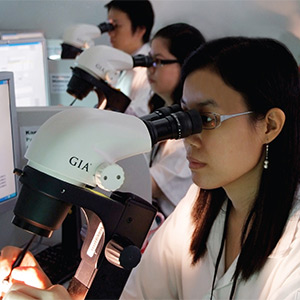
The fallout from Russia’s invasion of Ukraine continues to ripple through the diamond and jewelry industry.
Russian diamond miner Alrosa, which is 33% owned by the Russian government, announced Friday it has “suspended its involvement” in the Natural Diamond Council (NDC).
In addition, Peter Karakchiev, vice president of international affairs for Alrosa, has stepped down as vice chair of the Responsible Jewellery Council (RJC). He was first elected to the post in 2018.
In stepping down from the NDC, the group noted that Alrosa has also left its board and will cease all financial contributions.
“As an organization, our thoughts remain with people impacted by the current geopolitical crisis,” said the NDC.
In a statement, Alrosa called the current situation “unprecedented.”
“The company continues to monitor and analyze repercussions it might have for the industry and relationships that have been built over decades across the world,” it said.
Alrosa added that it stands “firm with the principles of sustainability and full transparency.”
While Alrosa has resigned its vice chairmanship with the RJC, it is still a certified member of the group. However, some want the RJC to suspend that certification, noting its membership agreement says certification can be withdrawn if a company is “engaged in any activity that might bring the RJC into disrepute.”
In this case, it’s Alrosa’s one-third owner that’s causing the problem, although the U.S. government slapped the miner itself with sanctions last week.
The RJC did not comment further on Alrosa’s status. In its statement on Karakchiev’s resignation, chairman David Bouffard said the group “will support our 1,500 international members with guidance to comply to all applicable sanctions, together with the RJC [Code of Practices] requirements on due diligence within their supply chains.”
Russia is also a member of the Kimberley Process (KP), the certification scheme designed to prevent conflict diamonds from entering the industry. Post-invasion, some have suggested the KP could designate Russian diamonds as conflict diamonds.
Yet, it’s unlikely that either the certification scheme or the group of NGOs active in it will call for that, as the KP charter doesn’t cover disputes that aren’t directly linked to diamonds.
The current head of the Kimberley Process Civil Society Coalition did not return a request for comment, nor did the KP’s current head.
In related news, the free fall of the Russian ruble has caused wealthy Muscovites to splurge on big-money jewelry, Bloomberg reported.
“The country’s wealthy are turning to luxury jewelry and watches in a bid to preserve the value of their savings,” it said.
Among the beneficiaries is Bulgari. Its CEO, Jean-Christophe Babin, told the news service “in the short term it has probably boosted [our Russian] business.
“We are there for the Russian people and not for the political world,” he added. “We operate in many different countries that have periods of uncertainty and tensions.”
Bloomberg also reported that Swatch Group has halted exports to Russia, though it also intends to keep its Russian stores open.
Top: The Ukranian flag (photo: Getty Images)
- Subscribe to the JCK News Daily
- Subscribe to the JCK Special Report
- Follow JCK on Instagram: @jckmagazine
- Follow JCK on X: @jckmagazine
- Follow JCK on Facebook: @jckmagazine







